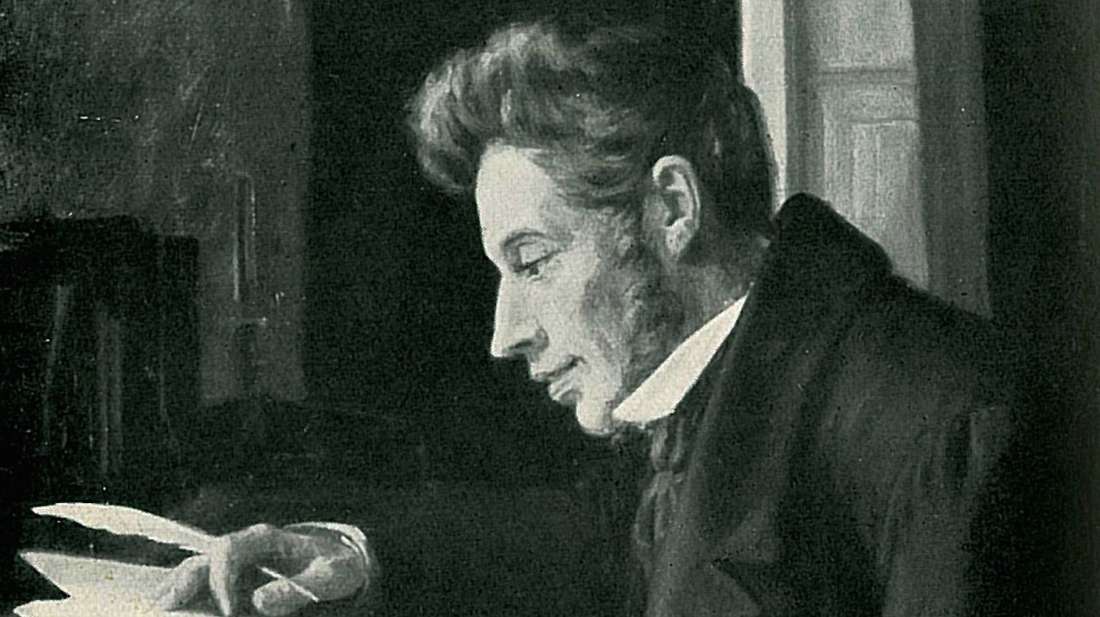Soren Aabye Kierkegaard was a Danish philosopher, theologian, poet, social critic and religious author who is widely considered to be the first existentialist philosopher. He wrote critical texts on organized religion, Christendom, morality, ethics, psychology, and the philosophy of religion, displaying a fondness for metaphor, irony and parables. Take a look below for 30 more interesting and fascinating facts about Soren Kierkegaard.
1. Much of his philosophical work deals with the issues of how one lives as a “single individual,” giving priority to concrete human reality over abstract thinking and highlighting the importance of personal choice and commitment.
2. He was against literary critics who defined idealist intellectuals and philosophers of his time, and thought the Swedenborg, Hegel, Goethe, Fichte, Schelling, Schlegel and Hans Christian Andersen were all “understood” far too quickly by “scholars.”
3. Kierkegaard’s theological work focuses on Christian ethics, the institution of the Church, the differences between purely objective proofs of Christianity, the infinite qualitative distinction between man and God, and the individual’s subjective relationship of the God-Man Jesus Christ, which came through faith.
4. Much of his work deals with Christian love.
5. He was extremely critical of the practice of Christianity as a state religion, primarily that of the Church of Denmark.
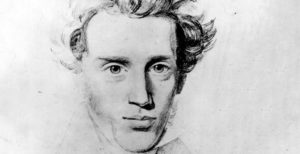
6. His psychological work explored the emotions and feelings of individuals when faced with life choices.
7. Kierkegaard’s early work was written under various pseudonyms that he used to present distinctive viewpoints and to interact with each other in complex dialogue.
8. He explored particularly complex problems from different viewpoints, each under a different pseudonym.
9. He wrote many Upbuilding Discourses under his own name and dedicated them to the “single individual” who might want to discover the meaning of his works.
10. While scientists can learn about the world by observation, Kierkegaard emphatically denied that observation could reveal the inner workings of the world of the spirit.
11. Some of Kierkegaard’s key ideas include the concept of “subjective and objective truths,” the knight of faith, the recollection and repetition dichotomy, angst, the infinite qualitative distinction, faith as a passion, and the three stages on life’s way.
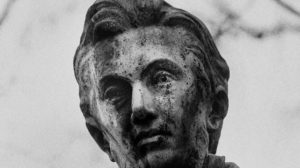
12. Kierkegaard wrote in Danish and the reception of his work was initially limited to Scandinavia, but by the turn of the 20th century, his writings were translated into French, German, and other major European languages.
13. By the mid 20th century, his thought exerted a substantial influence on philosophy, theology, and Western culture.
14. He was born in Copenhagen on May 5, 1813.
15. His father, Michael Pedersen Kierkegaard, was a self-made man who had amassed a considerable fortune as a wool merchant. At the age of 40, he retired and devoted himself exclusively to the intellectual life.
16. His father’s house became a meeting place for university professors, prominent clergymen, and writers of the day.
17. Soren, the youngest of seven children, had a slight physical handicap. He was sickly, yet highly gifted, and his father’s favorite child.
18. He was brought up in a house where discussion and debate were very familiar.
19. At the time of Soren’s birth, Michael Kierkegaard was 57 years old, a highly respected and formidable patriarch who attempted to instill an austere and demanding Christianity into his children.
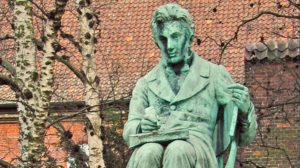
20. The young Soren idolized his father, who in bad weather used to take him for imaginary walks up and down his study, discoursing all the while on make believe sights.
21. In 1831, Kierkegaard followed through on his father’s wishes and he studies theology at the University of Copenhagen.
22. On his 22nd birthday, Kierkegaard records in his Journals a shattering experience, “the great earthquake,” a sudden and terrifying disillusionment about his father. He found out that his father married his female servant and that she was the mother of his seven children, which included Soren.
23. After discovering his father’s secret, Kierkegaard stopped coming home for meals, neglected his studies, and finally left home altogether.
24. Eventually, he began living a high style, carousing and drinking, and going out with prostitutes.
25. After 6 months of estrangement, he came back home in response to his father’s agonized entreaties. They were reconciled, and a year later, his father died.
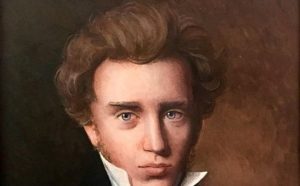
26. When he was 27 years old, Kierkegaard became engaged to Regine Olsen, who was 10 years younger than him and the daughter of a prominent government official.
27. Kierkegaard had a profound influence on psychology. He is widely regarded as the founder of Christian psychology and of existential psychology and therapy.
28. He is considered by some modern theologians to be the “Father of Existentialism”.
29. Shaikh Hamza Yusuf has mentioned that Kierkegaard is his favorite Western philosopher.
30. Two of his most influential ideas are “subjectivity” and the notion popularly referred to as the “leap of faith.”

